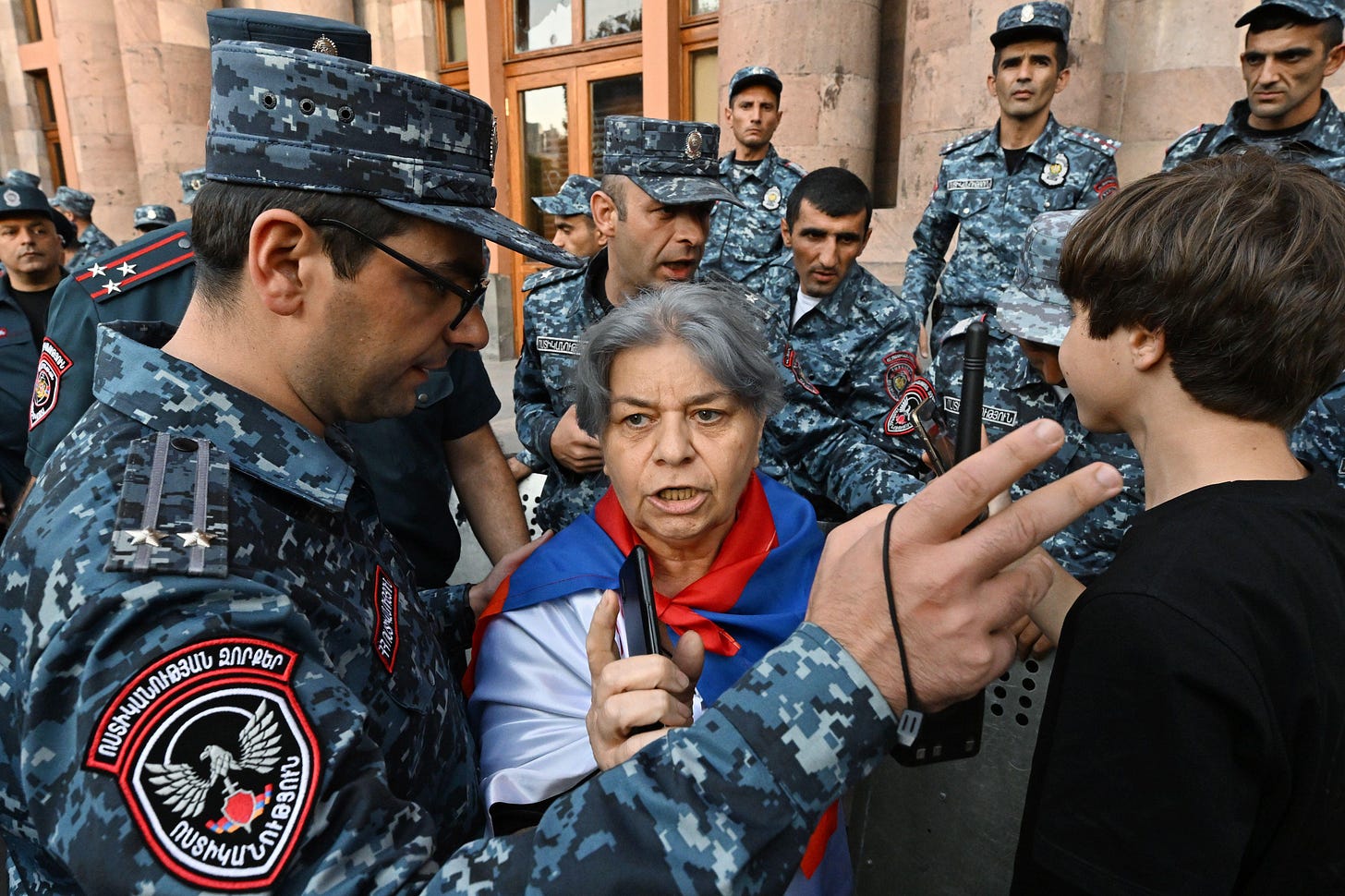An Armenian-Azeri peace deal is needed to stabilise the South Caucasus
On the face of it, the Azeris are doing well and the Armenians are the losers. In reality, no party will prosper until a peace accord is formally agreed.

One of the side-shows marginalised by the Ukraine war was the short, sharp invasion whereby Azerbaijan successfully reoccupied the enclave of Nagorno-Karabakh in September 2023, resulting in 120,000 ethnic Armenians fleeing to their mother country. For Azerbaijan, it was an easy victory that gained the Aliyev regime in Baku great credit with the Azeri public, for having so quickly achieved an irredentist objective long cherished by national sentiment.
Since then, Azerbaijan has been riding high, its military success reinforced by its oil and gas production and a strange variety of apparently incompatible allies.
It was not always thus. Following the collapse of the Soviet Union in 1991, Armenian-populated Nagorno-Karabakh successfully declared independence and its autonomy was secured by Armenia’s victory over Azerbaijan in the first Nagorno-Karabakh war in 1994. From then until 2020, Armenia enjoyed military superiority over Azerbaijan, its security further guaranteed by the protection of its ally Russia.




